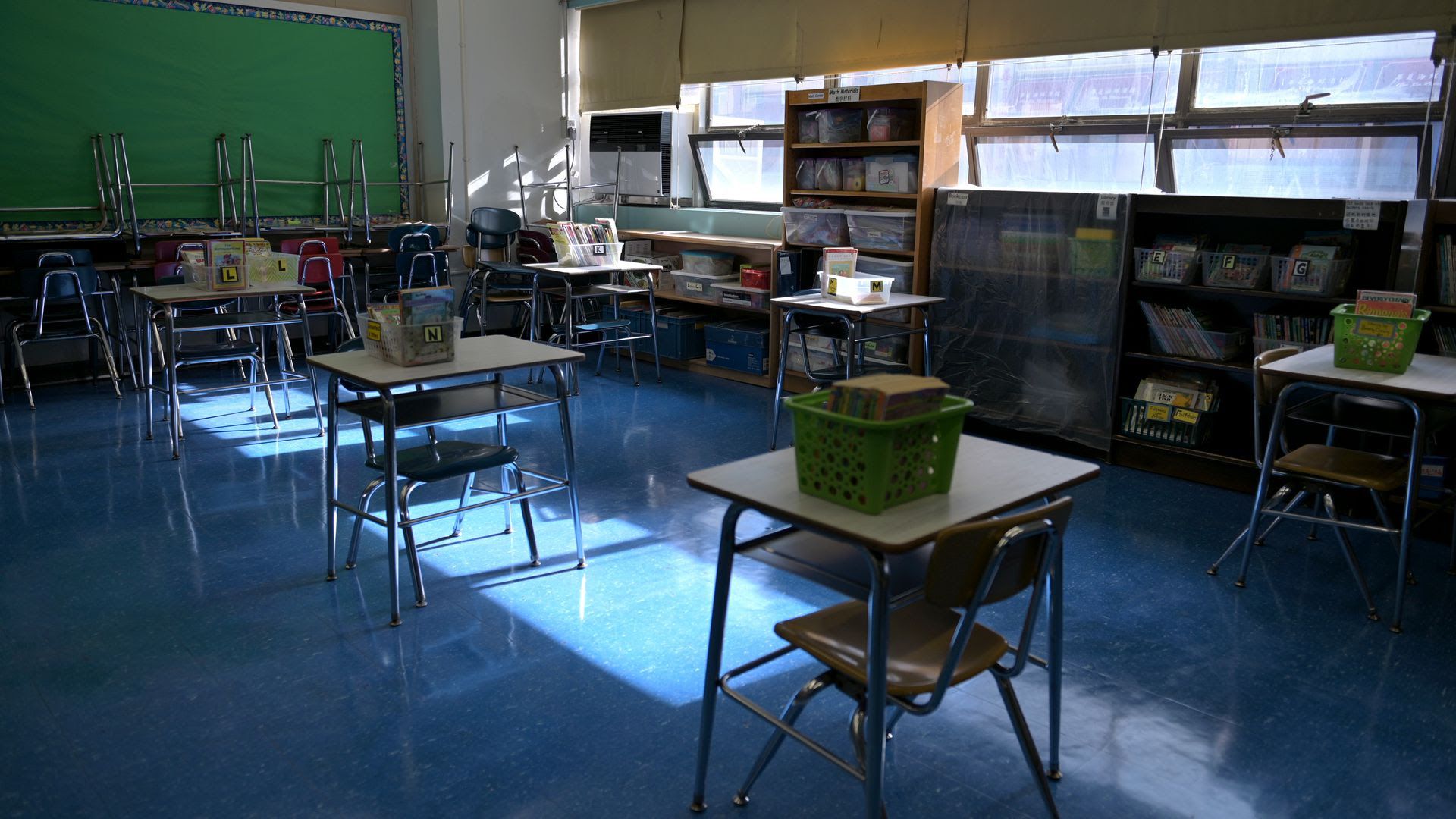Remote learners may suffer in the new economy
Add Axios as your preferred source to
see more of our stories on Google.

An empty classroom in New York City, which closed its schools earlier this month because of rising COVID-19 levels. Photo: Michael Loccisano/Getty Images
School districts are reporting declining grades as students struggle to adjust to the challenges of remote education.
Why it matters: It's bad enough that many children around the country are receiving sub-par remote schooling. But in an economy that will increasingly reward cognitive skills, those struggling today risk being left behind permanently.
What's happening: The Washington Post reported this week that an internal analysis by Virginia's Fairfax County — one of the largest school districts in the country, and one that has been operating largely online — found that the percentage of middle school and high school students earning F's in at least two classes had increased 83% from the same time last year.
- More than 40% of students in Houston's Independent School District are earning failing grades in at least two of their classes, while nearly 40% of public high-schoolers in St. Paul, Minnesota, have failing marks.
- In New York, the nation's largest school system, 60,000 kids can't even participate in remote learning because they lack the necessary devices.
- A "60 Minutes" report on Sunday found that in a single county school district in Tampa, 7,000 students have simply disappeared, never logging in for remote classes.
Be smart: There are kids who would've gone to college but won't, who would've graduated from high school but won't, because this country has prioritized other, riskier activities over in-person schooling.
- For too many kids — and especially for those who were already disadvantaged — remote education is like a band-aid that won't stick.
What's next: When these kids do become adults, they'll be entering an economy that will place an even greater premium on the cognitive skills that can only be obtained through education.
- Robots aren't coming for all of our jobs, but technology is automating low-skilled, repetitive tasks.
- "Education and training are central to helping the current and next generation thrive in the labor market," said Elisabeth Reynolds, the executive director of the MIT Task Force on the Work of the Future, at an event last week.
The bottom line: CEOs and politicians love to tell Americans that they need to up their skills to thrive in a more competitive economy. Yet during the pandemic, we've crippled their ability to do so.
